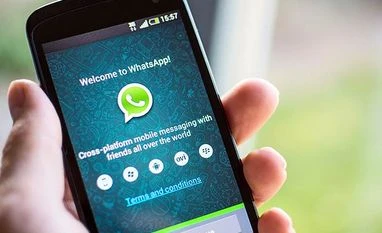Messaging giant WhatsApp is rolling out end-to-end encryption, a move that will potentially protect texts and voice calls of its over one billion users from hackers and "regimes".
The announcement has come close on the heels of a legal battle between Apple and FBI over the US agency's demand that the iPhone maker help unlock its mobile phones. Many Silicon Valley players had supported Apple citing that user data privacy needs to be respected.
"WhatsApp has always prioritised making your data and communication as secure as possible. And today, we're proud to announce that we've completed a technological development that makes WhatsApp a leader in protecting your private communication: full end-to-end encryption," WhatsApp founder Jan Koum said on the company blogpost.
"No one can see inside that message. Not cybercriminals. Not hackers. Not oppressive regimes. Not even us. End-to-end encryption helps make communication via WhatsApp private - sort of like a face-to-face conversation," he said.
The post by Koum, who grew up in Soviet-era USSR during the Communist rule, said the fact that people couldn't speak freely was one of the reasons his family moved to the US.
He added that end-to-end encryption will ultimately represent the future of personal communication.
The blog highlighted that there are stories around sensitive records being improperly accessed or stolen and people's digital information and communication will be more vulnerable to attack in the years to come.
"Encryption is one of the most important tools governments, companies, and individuals have to promote safety and security in the new digital age. Recently there has been a lot of discussion about encrypted services and the work of law enforcement," he said.
It further said while the company recognised the important work of law enforcement in keeping people safe, "efforts to weaken encryption risk exposing people's information to abuse from cybercriminals, hackers, and rogue states".
He added that more than a billion people use Facebook- owned WhatsApp to stay in touch with their friends and family all over the world.
"The desire to protect people's private communication is one of the core beliefs we have at WhatsApp, and for me, it's personal... And now, every single one of those people can talk freely and securely on WhatsApp," Koum said.
The announcement has come close on the heels of a legal battle between Apple and FBI over the US agency's demand that the iPhone maker help unlock its mobile phones. Many Silicon Valley players had supported Apple citing that user data privacy needs to be respected.
"WhatsApp has always prioritised making your data and communication as secure as possible. And today, we're proud to announce that we've completed a technological development that makes WhatsApp a leader in protecting your private communication: full end-to-end encryption," WhatsApp founder Jan Koum said on the company blogpost.
More From This Section
He added that the latest version of the app will encrypt every call, message, photo, video, file and voice message that is sent on the platform by default, including group chats.
"No one can see inside that message. Not cybercriminals. Not hackers. Not oppressive regimes. Not even us. End-to-end encryption helps make communication via WhatsApp private - sort of like a face-to-face conversation," he said.
The post by Koum, who grew up in Soviet-era USSR during the Communist rule, said the fact that people couldn't speak freely was one of the reasons his family moved to the US.
He added that end-to-end encryption will ultimately represent the future of personal communication.
The blog highlighted that there are stories around sensitive records being improperly accessed or stolen and people's digital information and communication will be more vulnerable to attack in the years to come.
"Encryption is one of the most important tools governments, companies, and individuals have to promote safety and security in the new digital age. Recently there has been a lot of discussion about encrypted services and the work of law enforcement," he said.
It further said while the company recognised the important work of law enforcement in keeping people safe, "efforts to weaken encryption risk exposing people's information to abuse from cybercriminals, hackers, and rogue states".
He added that more than a billion people use Facebook- owned WhatsApp to stay in touch with their friends and family all over the world.
"The desire to protect people's private communication is one of the core beliefs we have at WhatsApp, and for me, it's personal... And now, every single one of those people can talk freely and securely on WhatsApp," Koum said.
)